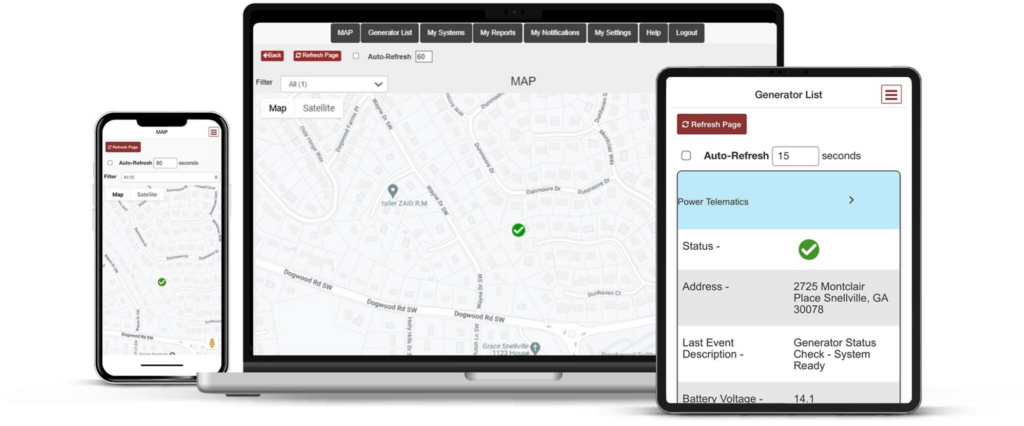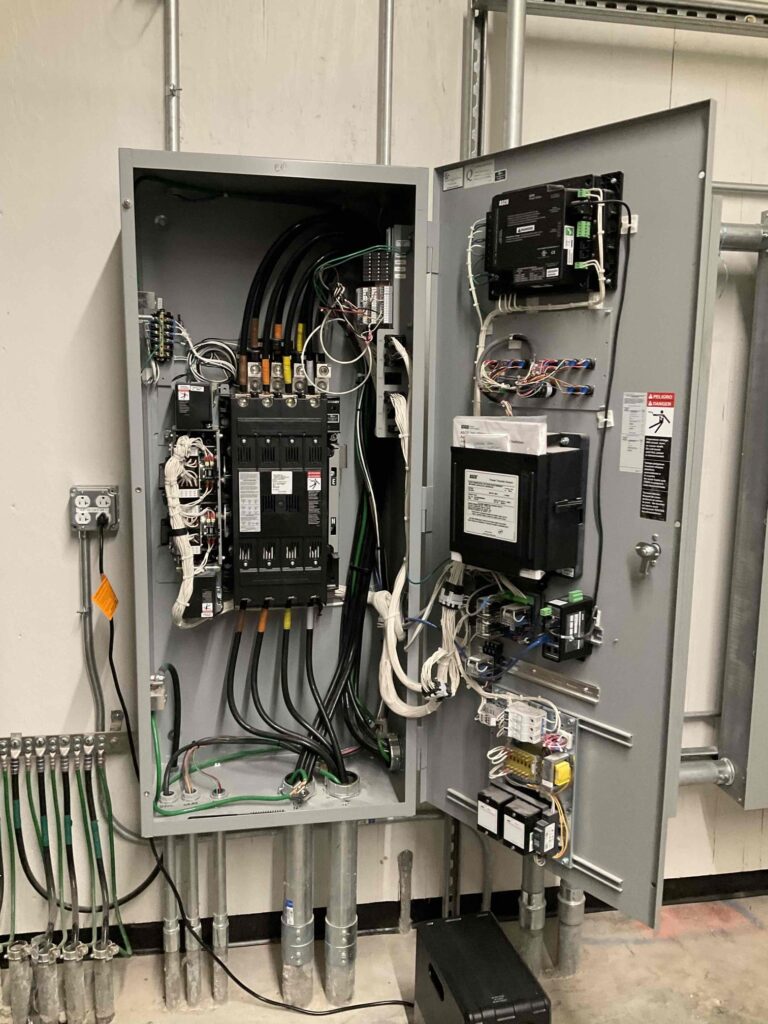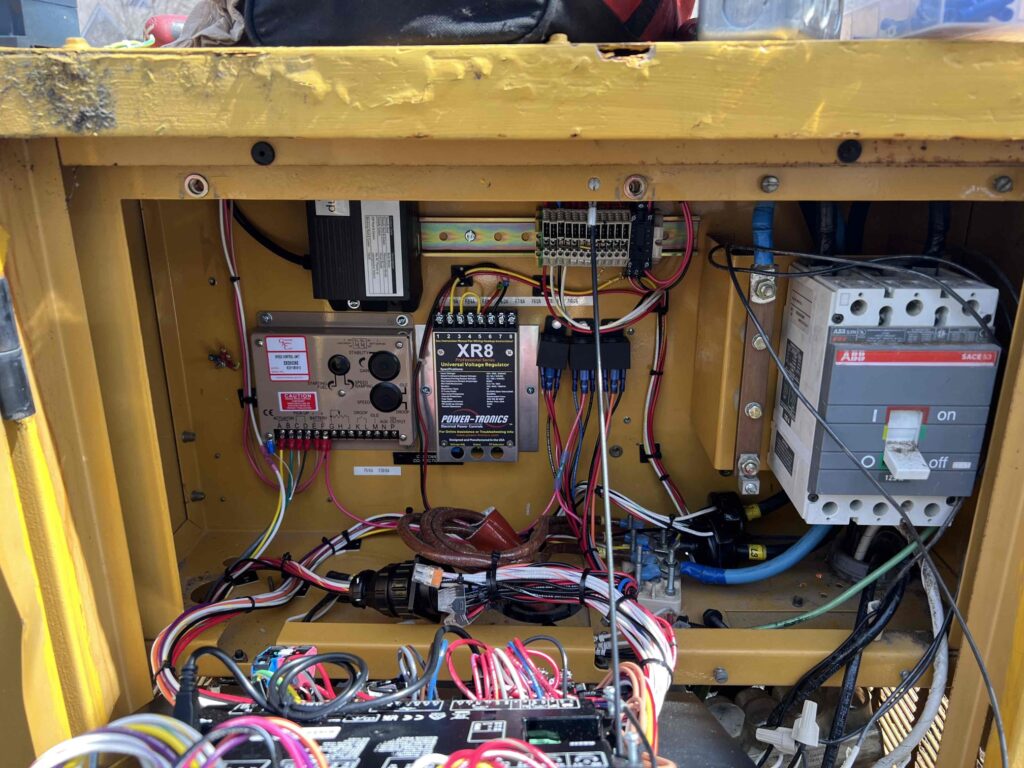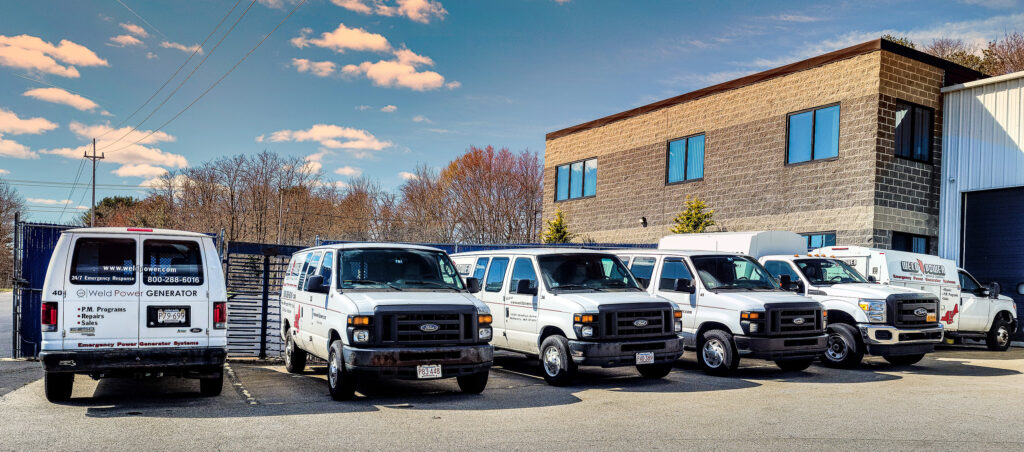8 Shocking Reasons: Why Is The Generator Running While Power Is On

For facility managers, building owners, and operators, seeing a generator running while utility power is available can be puzzling and concerning. A properly functioning generator should typically only operate when there is a loss of power, unless intentionally activated for testing or maintenance. If your generator is running while utility power is on, here are some common reasons why this might be happening and what you can do about it.
Table of Contents
Scheduled Generator Exercise
Most commercial and industrial generators are programmed to run automatically for exercise purposes. This periodic operation ensures that the engine remains in good working condition, prevents fuel from degrading, and verifies that all components function properly. Generator exercise is typically scheduled weekly, bi-weekly, or monthly, depending on manufacturer recommendations and facility needs. During this process, utility power remains active, but the generator runs without transferring load to circulate the fluids and charge the batteries.
Remote Monitoring or Control System Activation
Some generators are integrated into building management systems (BMS) or remote monitoring platforms that allow for remote start and testing. If an operator or technician remotely initiates a generator run, it may appear as if the unit is running for no reason. Checking system logs and notifications can help determine if a remote command was issued.

Load Demand Issues (Load Management System Activation)
Certain facilities with high power demands use load management systems to supplement power during peak usage periods. In these cases, the generator may be programmed to run even when utility power is available to balance electrical loads and prevent demand spikes. If your facility uses a load-shedding or peak shaving system, the generator’s activation could be intentional.
Power Quality Fluctuations
Even when utility power is present, fluctuations in voltage or frequency can trigger a generator start. Sensitive ATS units may detect these irregularities and preemptively switch to generator power to protect equipment from potential damage. Investigating power quality issues with an electrical engineer can help identify whether voltage sags, frequency variations, or harmonic distortions are causing the generator to start unnecessarily.
Missing a Leg of Power
In three-phase electrical systems, a missing phase (or leg) of power can create an imbalance that may trigger the generator to start. If one phase is lost due to a utility issue, blown fuse, or wiring failure, the ATS may interpret this as a full power outage and transfer the load to the generator. Checking for phase imbalances and verifying proper voltage on all legs can help diagnose this issue.

Transfer Switch Malfunction
Automatic Transfer Switches (ATS) play a critical role in sensing power loss and directing the load to the generator. If the ATS malfunctions or misinterprets power availability, it may signal the generator to start even when utility power is stable. This could be due to a faulty relay, sensor issues, or improper wiring. Diagnosing the ATS with a professional technician can determine if repairs or replacements are necessary.
Incorrect ATS Settings
Some ATS units have settings that allow for load testing or specific operational preferences. If an ATS is configured incorrectly, it could cause the generator to start unexpectedly. Checking the ATS programming and ensuring that the settings match the facility’s intended operation can prevent unnecessary generator starts.

Sensor or Wiring Issues
Faulty wiring, damaged sensors, or loose connections within the generator’s control panel can cause incorrect readings, tricking the system into thinking there is a power outage. A thorough inspection of wiring harnesses, voltage sensors, and control circuits can help diagnose and resolve these issues.
What Should You Do If Your Generator Is Running While Power Is On?
If your generator is running unexpectedly, here are the steps you should take:
- Check the Control Panel – Look for alerts, fault codes, or exercise timers that may indicate a routine self-test.
- Verify Transfer Switch Status – Ensure that the ATS is not calling for generator power due to a malfunction or incorrect settings.
- Review Remote Monitoring Logs – Check if the generator was remotely activated for maintenance or load management.
- Inspect Power Quality – Monitor voltage and frequency fluctuations in your utility power that may be triggering the generator.
- Schedule Professional Inspection – If no clear cause is found, consult a generator technician to perform a diagnostic evaluation.

Conclusion – Why Is My Generator Running While Power Is On?
A generator running while power is on is not always a cause for alarm, but it is important to investigate the reason to prevent unnecessary wear, fuel consumption, and potential operational issues. Regular maintenance, system testing, and professional inspections can help ensure that your generator runs only when needed, providing reliable backup power when it matters most.
If you are experiencing unexpected generator operation and need expert assistance, contact Weld Power Generator. Our team of trained technicians can diagnose and resolve any generator or ATS issues, keeping your backup power system in peak condition.
